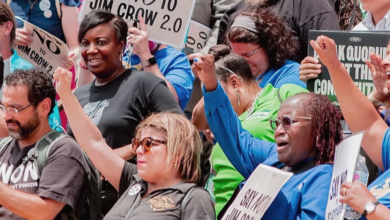How to File a Civil Rights Violation Lawsuit in Washington, USA
Filing a civil rights violation lawsuit in Washington? Learn key steps, deadlines, and how to prove discrimination for maximum compensation.

Filing a civil rights violation lawsuit in Washington State is a powerful way to seek justice when your fundamental rights have been violated. Whether you’ve faced discrimination in employment, housing, education, or experienced police misconduct, Washington’s robust civil rights laws provide legal protections at both state and federal levels. Understanding the proper steps to file your claim – from documenting evidence to meeting strict deadlines – can mean the difference between a successful case and a dismissed claim. This guide will walk you through the entire process of pursuing a civil rights violation lawsuit in Washington.
Washington offers stronger protections than many states through its Washington Law Against Discrimination (WLAD), which covers broader categories like marital status and sexual orientation. When combined with federal laws like the Civil Rights Act and Americans with Disabilities Act, victims have multiple avenues for seeking justice. However, civil rights cases involve complex procedures, including mandatory administrative filings before going to court. Knowing whether to file with state agencies like the Washington State Human Rights Commission or federal bodies like the EEOC is crucial for building a strong case from the start.
How to File a Civil Rights Violation Lawsuit in Washington, USA
Understanding Civil Rights Violations in Washington
In Washington State, civil rights violations occur when individuals or institutions discriminate against or harm others based on protected characteristics such as race, gender, religion, disability, sexual orientation, or other categories safeguarded under state and federal law. These violations can manifest in various contexts, including employment discrimination (unequal pay, wrongful termination), housing denials, police misconduct (excessive force, false arrests), or denial of public services.
Determining the Legal Basis for Your Claim
Before filing a civil rights violation lawsuit in Washington, you must identify which specific laws protect your rights whether under state statutes like Washington’s Law Against Discrimination (WLAD), which prohibits bias in employment, housing, and public accommodations, or federal laws such as Title VII (employment discrimination), the ADA (disability rights), or Section 1983 (constitutional violations by government entities). The legal basis determines where you file (state vs. federal court), what remedies you can seek, and whether you must first exhaust administrative remedies by filing with agencies like the EEOC or Washington State Human Rights Commission.
Filing an Administrative Complaint
Before suing in court, many civil rights claims require filing an administrative complaint. For employment discrimination, you must first submit a charge to the EEOC or WSHRC. These agencies investigate and may issue a Right-to-Sue Letter, allowing you to proceed to court. For housing discrimination, complaints go to HUD or the WSHRC. Police misconduct claims may require a tort claim notice before suing a government entity. Missing these steps can result in case dismissal, so adhering to deadlines (often 180–300 days from the violation) is critical.
Hiring a Civil Rights Attorney
A skilled civil rights attorney can navigate complex laws, gather evidence, and negotiate settlements. Look for lawyers experienced in Washington State civil rights cases many work on a contingency fee basis, meaning they only get paid if you win. Organizations like the ACLU of Washington or local legal aid groups may provide assistance if you cannot afford an attorney.
Drafting and Filing the Lawsuit
Once you’ve obtained a Right-to-Sue Letter (if required) and gathered sufficient evidence, your attorney will draft a formal complaint outlining your civil rights claims, which must include key details such as the parties involved, a clear description of the violation, the legal basis for your claim (citing specific statutes like the Washington Law Against Discrimination or federal laws such as Title VII), and the specific relief sought (compensatory damages, injunctive relief, etc.).
The Discovery and Trial Process
Mandatory Disclosure
Both parties must share relevant documents, witness lists, and expert reports early in the process. Plaintiffs typically request employment records, surveillance footage, or internal policies proving discrimination. Defendants often demand medical records or employment history to challenge damages claims.
Pretrial Motions That Shape the Case
Defendants often file motions to dismiss weak claims or exclude evidence. Plaintiffs may seek summary judgment if facts are undisputed. These rulings frequently determine whether a case reaches trial or settles.
Common Trial Challenges
Proving discriminatory intent often requires circumstantial evidence and statistical patterns. Defense attorneys frequently attack plaintiff credibility. Judges closely scrutinize whether plaintiffs mitigated damages (e.g., sought other jobs after wrongful termination).
Post-Trial Options
Within 30 days, parties may file motions for new trials or amended judgments. The losing party must decide whether to appeal while simultaneously negotiating potential settlements to avoid further litigation.
Appealing a Decision
Valid Grounds for Appeal
You must prove the trial court made significant legal errors affecting your case’s outcome. Common grounds include judicial misconduct, improper jury instructions, or exclusion of key evidence. The appeals court won’t reconsider facts, only whether the law was correctly applied.
Strict Filing Requirements
Washington requires appeals to be filed within 30 days (state cases) or 60 days (federal cases) after judgment. Missing this deadline forfeits your appeal rights. Your attorney must prepare a Notice of Appeal and designate the trial record for review.
The Appellate Process Timeline
After filing, expect 6-18 months for resolution. The process involves written briefs, possible oral arguments, and judicial review. Successful appeals may result in a new trial, modified judgment, or case dismissal. Fewer than 20% of civil appeals succeed, emphasizing the need for strong legal arguments.
Alternative Resolution Options
Consider mediation during appeals to potentially settle faster. Some cases qualify for discretionary review by Washington’s Supreme Court if they involve novel legal questions or public importance.
Costs and Resources
Appeals often cost $10,000-$50,000. Pro bono organizations like the ACLU may assist with meritorious civil rights appeals. Fee-shifting provisions in civil rights laws sometimes allow recovery of appeal costs if you prevail.
Read More: Facing Charges in South Australia? How to Protect Your Rights
Conclusion
Pursuing a civil rights violation lawsuit in Washington can be a challenging but necessary step toward justice and accountability. Whether you’re fighting workplace discrimination, housing inequality, or police misconduct, understanding the legal process from filing administrative complaints to presenting your case in court is essential for protecting your rights. By gathering strong evidence, meeting critical deadlines, and working with an experienced civil rights attorney, you significantly improve your chances of a successful outcome that not only compensates you but also helps prevent future violations.
While the path to justice may seem daunting, remember that Washington’s robust civil rights laws are designed to protect you. Taking action through a civil rights violation lawsuit not only seeks redress for your personal harm but also contributes to broader societal change. If you believe your rights have been violated, don’t hesitate to consult with a qualified attorney who can guide you through each step of the legal process and help you build the strongest possible case. Your courage in standing up for your rights makes a difference.
FAQs
What is the deadline to file a civil rights lawsuit in Washington?
Most claims must be filed within 2–3 years, but federal employment discrimination cases require an EEOC charge within 180–300 days before suing.
Can I sue for civil rights violations without a lawyer?
Yes, but civil rights cases are legally complex, and an experienced attorney significantly improves your chances of success.
What compensation can I win in a civil rights lawsuit?
Possible damages include lost wages, emotional distress compensation, punitive damages, and attorney’s fees.
How do I prove my civil rights were violated?
Strong evidence includes witness statements, documents, video recordings, police reports, and expert testimony.
Where can I get free legal help for a civil rights case in Washington?
Organizations like the ACLU of Washington, NW Justice Project, and WSBA’s Legal Aid offer low-cost or free assistance.











